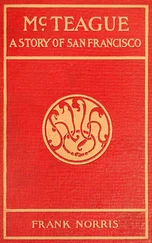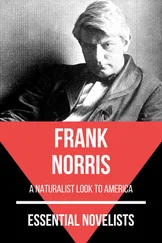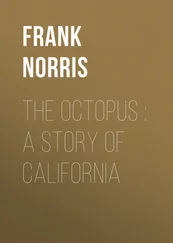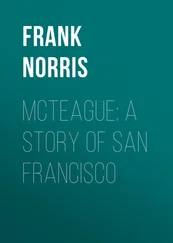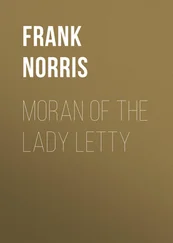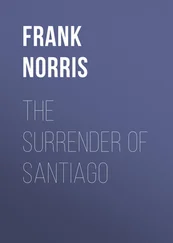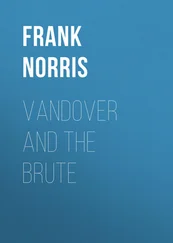Frank Norris - The Pit - A Story of Chicago
Здесь есть возможность читать онлайн «Frank Norris - The Pit - A Story of Chicago» — ознакомительный отрывок электронной книги совершенно бесплатно, а после прочтения отрывка купить полную версию. В некоторых случаях можно слушать аудио, скачать через торрент в формате fb2 и присутствует краткое содержание. Жанр: foreign_prose, literature_19, foreign_antique, на английском языке. Описание произведения, (предисловие) а так же отзывы посетителей доступны на портале библиотеки ЛибКат.
- Название:The Pit: A Story of Chicago
- Автор:
- Жанр:
- Год:неизвестен
- ISBN:нет данных
- Рейтинг книги:3 / 5. Голосов: 1
-
Избранное:Добавить в избранное
- Отзывы:
-
Ваша оценка:
- 60
- 1
- 2
- 3
- 4
- 5
The Pit: A Story of Chicago: краткое содержание, описание и аннотация
Предлагаем к чтению аннотацию, описание, краткое содержание или предисловие (зависит от того, что написал сам автор книги «The Pit: A Story of Chicago»). Если вы не нашли необходимую информацию о книге — напишите в комментариях, мы постараемся отыскать её.
The Pit: A Story of Chicago — читать онлайн ознакомительный отрывок
Ниже представлен текст книги, разбитый по страницам. Система сохранения места последней прочитанной страницы, позволяет с удобством читать онлайн бесплатно книгу «The Pit: A Story of Chicago», без необходимости каждый раз заново искать на чём Вы остановились. Поставьте закладку, и сможете в любой момент перейти на страницу, на которой закончили чтение.
Интервал:
Закладка:
Outside upon the sidewalks and by the curbs, an apparently inextricable confusion prevailed; policemen with drawn clubs laboured and objurgated: anxious, preoccupied young men, their opera hats and gloves beaded with rain, hurried to and fro, searching for their carriages. At the edge of the awning, the caller, a gigantic fellow in gold-faced uniform, shouted the numbers in a roaring, sing-song that dominated every other sound. Coachmen, their wet rubber coats reflecting the lamplight, called back and forth, furious quarrels broke out between hansom drivers and the police officers, steaming horses with jingling bits, their backs covered with dark green cloths, plunged and pranced, carriage doors banged, and the roll of wheels upon the pavement was as the reverberation of artillery caissons.
"Get your carriage, sir?" cried a ragged, half-grown arab at Cressler's elbow.
"Hurry up, then," said Cressler. Then, raising his voice, for the clamour was increasing with every second: "What's your number, Laura? You girls first. Ninety-three? Get that, boy? Ninety-three. Quick now."
The carriage appeared. Hastily they said good-by; hastily Laura expressed to Mrs. Cressler her appreciation and enjoyment. Corthell saw them to the carriage, and getting in after them shut the door behind him. They departed.
Laura sank back in the cool gloom of the carriage's interior redolent of damp leather and upholstery.
"What an evening! What an evening!" she murmured.
On the way home both she and Page appealed to the artist, who knew the opera well, to hum or whistle for them the arias that had pleased them most. Each time they were enthusiastic. Yes, yes, that was the air. Wasn't it pretty, wasn't it beautiful?
But Aunt Wess' was still unsatisfied.
"I don't see yet," she complained, "why the young man, the one with the pointed beard, didn't marry that lady and be done with it. Just as soon as they'd seem to have it all settled, he'd begin to take on again, and strike his breast and go away. I declare, I think it was all kind of foolish."
"Why, the duke—don't you see. The one who sang bass—" Page laboured to explain.
"Oh, I didn't like him at all," said Aunt Wess'. "He stamped around so." But the audience itself had interested her, and the decollete gowns had been particularly impressing.
"I never saw such dressing in all my life," she declared. "And that woman in the box next ours. Well! did you notice that!" She raised her eyebrows and set her lips together. "Well, I don't want to say anything."
The carriage rolled on through the darkened downtown streets, towards the North Side, where the Dearborns lived. They could hear the horses plashing through the layer of slush—mud, half-melted snow and rain—that encumbered the pavement. In the gloom the girls' wraps glowed pallid and diaphanous. The rain left long, slanting parallels on the carriage windows. They passed on down Wabash Avenue, and crossed over to State Street and Clarke Street, dark, deserted.
Laura, after a while, lost in thought, spoke but little. It had been a great evening—because of other things than mere music. Corthell had again asked her to marry him, and she, carried away by the excitement of the moment, had answered him encouragingly. On the heels of this she had had that little talk with the capitalist Jadwin, and somehow since then she had been steadied, calmed. The cold air and the rain in her face had cooled her flaming cheeks and hot temples. She asked herself now if she did really, honestly love the artist. No, she did not; really and honestly she did not; and now as the carriage rolled on through the deserted streets of the business districts, she knew very well that she did not want to marry him. She had done him an injustice; but in the matter of righting herself with him, correcting his false impression, she was willing to procrastinate. She wanted him to love her, to pay her all those innumerable little attentions which he managed with such faultless delicacy. To say: "No, Mr. Corthell, I do not love you, I will never be your wife," would—this time—be final. He would go away, and she had no intention of allowing him to do that.
But abruptly her reflections were interrupted. While she thought it all over she had been looking out of the carriage window through a little space where she had rubbed the steam from the pane. Now, all at once, the strange appearance of the neighbourhood as the carriage turned north from out Jackson Street into La Salle, forced itself upon her attention. She uttered an exclamation.
The office buildings on both sides of the street were lighted from basement to roof. Through the windows she could get glimpses of clerks and book-keepers in shirt-sleeves bending over desks. Every office was open, and every one of them full of a feverish activity. The sidewalks were almost as crowded as though at noontime. Messenger boys ran to and fro, and groups of men stood on the corners in earnest conversation. The whole neighbourhood was alive, and this, though it was close upon one o'clock in the morning!
"Why, what is it all?" she murmured.
Corthell could not explain, but all at once Page cried:
"Oh, oh, I know. See this is Jackson and La Salle streets. Landry was telling me. The 'commission district,' he called it. And these are the brokers' offices working overtime—that Helmick deal, you know."
Laura looked, suddenly stupefied. Here it was, then, that other drama, that other tragedy, working on there furiously, fiercely through the night, while she and all those others had sat there in that atmosphere of flowers and perfume, listening to music. Suddenly it loomed portentous in the eye of her mind, terrible, tremendous. Ah, this drama of the "Provision Pits," where the rush of millions of bushels of grain, and the clatter of millions of dollars, and the tramping and the wild shouting of thousands of men filled all the air with the noise of battle! Yes, here was drama in deadly earnest—drama and tragedy and death, and the jar of mortal fighting. And the echoes of it invaded the very sanctuary of art, and cut athwart the music of Italy and the cadence of polite conversation, and the shock of it endured when all the world should have slept, and galvanised into vivid life all these sombre piles of office buildings. It was dreadful, this labour through the night. It had all the significance of field hospitals after the battle—hospitals and the tents of commanding generals. The wounds of the day were being bound up, the dead were being counted, while, shut in their headquarters, the captains and the commanders drew the plans for the grapple of armies that was to recommence with daylight.
"Yes, yes, that's just what it is," continued Page. "See, there's the Rookery, and there's the Constable Building, where Mr. Helmick has his offices. Landry showed me it all one day. And, look back." She raised the flap that covered the little window at the back of the carriage. "See, down there, at the end of the street. There's the Board of Trade Building, where the grain speculating is done,—where the wheat pits and corn pits are."
Laura turned and looked back. On either side of the vista in converging lines stretched the blazing office buildings. But over the end of the street the lead-coloured sky was rifted a little. A long, faint bar of light stretched across the prospect, and silhouetted against this rose a sombre mass, unbroken by any lights, rearing a black and formidable facade against the blur of light behind it.
And this was her last impression of the evening. The lighted office buildings, the murk of rain, the haze of light in the heavens, and raised against it the pile of the Board of Trade Building, black, grave, monolithic, crouching on its foundations, like a monstrous sphinx with blind eyes, silent, grave,—crouching there without a sound, without sign of life under the night and the drifting veil of rain.
Читать дальшеИнтервал:
Закладка:
Похожие книги на «The Pit: A Story of Chicago»
Представляем Вашему вниманию похожие книги на «The Pit: A Story of Chicago» списком для выбора. Мы отобрали схожую по названию и смыслу литературу в надежде предоставить читателям больше вариантов отыскать новые, интересные, ещё непрочитанные произведения.
Обсуждение, отзывы о книге «The Pit: A Story of Chicago» и просто собственные мнения читателей. Оставьте ваши комментарии, напишите, что Вы думаете о произведении, его смысле или главных героях. Укажите что конкретно понравилось, а что нет, и почему Вы так считаете.


